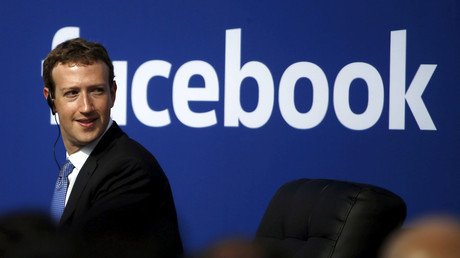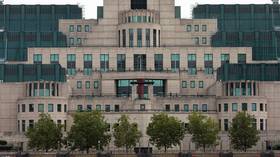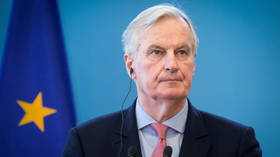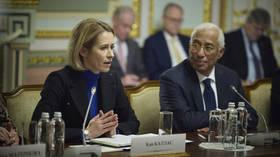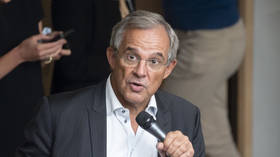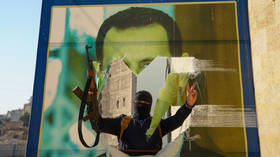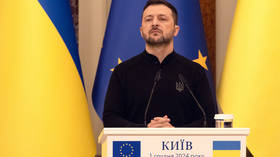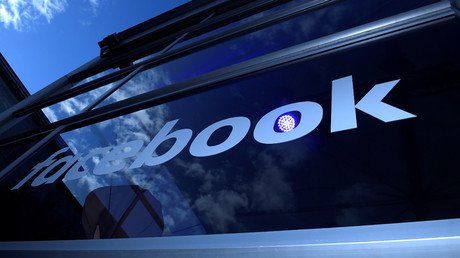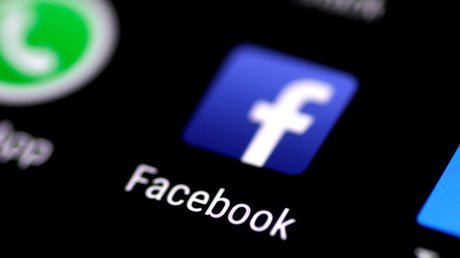Zuckerberg roasted online for unapologetic update on Facebook’s ‘breach of trust’
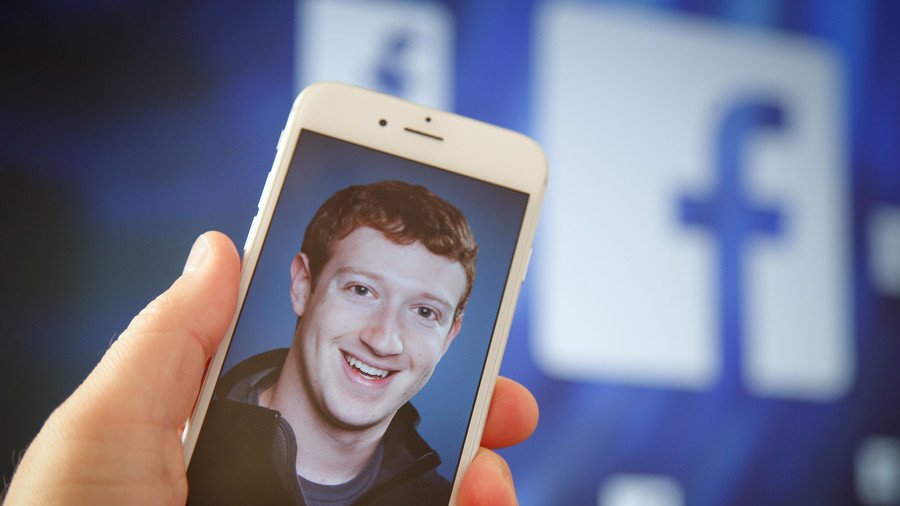
Facebook CEO Mark Zuckerberg was eviscerated on Twitter after he acknowledged a breach of trust over the Cambridge Analytica scandal but failed to apologize. Lessons have been learned, he said, pledging to do better in future.
In a post on his own network on Wednesday, the billionaire philanthropist admitted that third-party apps which ask users for permission to access their personal data from the social networking site were a security risk, finally acknowledging a decade of concerns from users.
He cited Cambridge University researcher Aleksandr Kogan’s 2013 personality quiz, which mined data on some 300,000 Facebook users and their contacts, saying Facebook changed its data use rules in 2014, in response to this.
In 2015 Facebook banned Kogan’s app after learning from Britain’s Guardian newspaper that he had sold data on to Cambridge Analytica (CA), the London-based political strategy firm which worked for a string of US politicians’ election campaigns, including that of President Donald Trump.
The firm certified that it had deleted that data, in response to demands from Facebook, but last week the Guardian and Britain’s Channel 4 News alleged that that had not been done. Channel 4 covertly filmed CA CEO Alexander Nix boasting of fixing elections around the world, using prostitutes and blackmail to control politicians. He has since been suspended by the firm.
“This was a breach of trust between Kogan, Cambridge Analytica and Facebook,” Zuckerberg admitted. “But it was also a breach of trust between Facebook and the people who share their data with us and expect us to protect it.”
What he is saying is he is sorry that the secret support methods he allowed for Team @BarackObama was figured out by others and everyone knows about it now - he's only sorry he got caught: Zuckerberg breaks his silence over Cambridge Analytica scandal https://t.co/6H1PO6VCJb
— Tony Shaffer (@T_S_P_O_O_K_Y) March 21, 2018
In a bid to reassure users amid calls for a boycott of the platform, Zuckerberg claimed Facebook had already had most of the security measures needed to prevent a repeat of the data breach in place for years.
Disastrous statement from Mark Zuckerberg. He acts like he was the victim! No apology, no responsibility, no remorseNo promise to stop selling your data to the highest bidderYou aren’t users to him, you’re products
— Jack Posobiec 🇺🇸 (@JackPosobiec) March 21, 2018
“But we also made mistakes, there's more to do, and we need to step up and do it,” he said. “I started Facebook, and at the end of the day I'm responsible for what happens on our platform.”
What's not in Zuckerberg's 937-word statement:No pledge to address CongressNo discussion of regulationNo reckoning of why Facebook now cares about this old event(they got busted, stock dropped)No words like apology, sorry, regretMore in our lead story at 6pm tonight...
— Ari Melber (@AriMelber) March 21, 2018
Twitter was alive on Wednesday night with posts pointing out that, for Zuckerberg at least, sorry seems to be the hardest word.
Like many with savior delusions, Mark Zuckerberg doesn't know how to say sorry. So I edited the opening and closing of his non-apology apology for him -- no charge. pic.twitter.com/9R4Y1sq3Y2
— Anand Giridharadas (@AnandWrites) March 21, 2018
However, Zuckerberg eventually uttered the s-word in an interview with CNN on Wednesday evening. “This was a major breach of trust, and I'm really sorry that this happened,” he said.
The CEO also said Facebook would testify before Congress on the scandal, but did not commit to appearing in person. “What we try to do is send the person at Facebook who will have the most knowledge,” he said. “If that's me, then I am happy to go.”
Zuckerberg said he was willing to consider outside regulation of Facebook, within limits. “I’m not sure we shouldn’t be regulated,” he said. “There are things like ad transparency regulation that I would love to see.”
In a series of interviews, he tried to placate all concerns. He told the New York Times Facebook’s security force would be doubled. “We’ll have more than 20,000 people working on security and community operations by the end of the year, I think we have about 15,000 now.”
He added claims that Facebook had already countered fake news bots from eastern Europe in last year’s special election in Alabama. “We found a significant number of Macedonian accounts that were trying to spread false news, and were able to eliminate those,” he said.
Zuckerberg also complained of having to police racist and other prejudiced content on his social media platform. “Where’s the line on hate speech?” he asked Recode. “I mean, who chose me to be the person that did that? I guess I have to, because of where we are now, but I’d rather not.”
Think your friends would be interested? Share this story!
